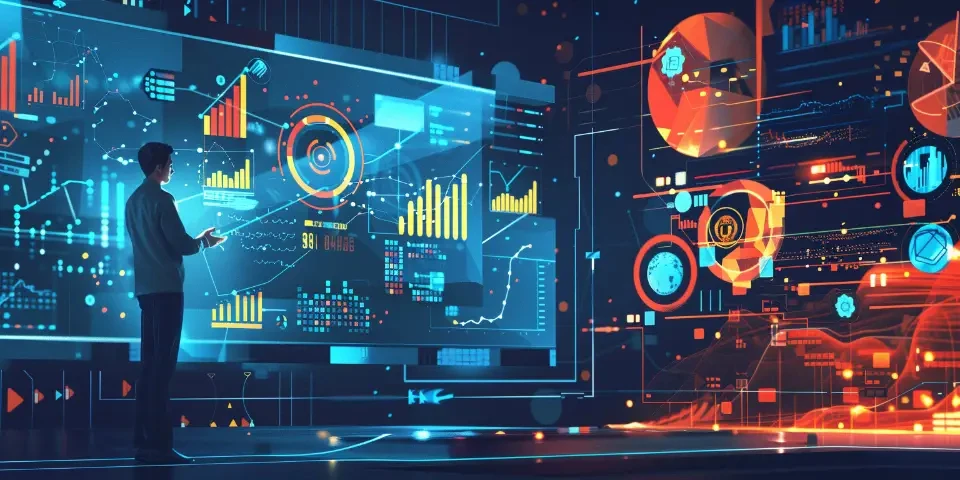Artificial Intelligence (AI) has revolutionized various industries, and the gaming industry is no exception. The integration of AI technology in gaming has paved the way for the creation of immersive and unique experiences for players. In this article, we will explore how AI is transforming the gaming landscape and the key aspects that contribute to this transformation.
Enhanced Gameplay Mechanics
AI algorithms have significantly enhanced gameplay mechanics by creating smarter and more adaptive non-player characters (NPCs). Gone are the days of predictable AI opponents; now, NPCs can learn, adapt, and make decisions based on complex algorithms. This adds an element of surprise, challenge, and realism to the gaming experience.

Additionally, AI-powered systems can analyze player behavior and adjust the difficulty level accordingly. This helps in maintaining engagement by providing an appropriate challenge to players of different skill levels.
Realistic Graphics and Environments
AI algorithms have greatly contributed to the development of realistic graphics and environments in gaming. Machine learning techniques such as deep neural networks enable the generation of high-quality textures, lighting effects, and character animations. This creates visually stunning and immersive worlds for players to explore.
Moreover, AI can dynamically adjust these graphics and environments based on factors like player preferences, hardware capabilities, and real-time performance. This ensures optimal visual fidelity without compromising on gameplay experience.
Procedural Content Generation
Procedural Content Generation (PCG) is another area where AI excels in gaming. PCG algorithms use AI techniques to generate game content such as levels, maps, quests, and game objects. This not only saves development time but also ensures a diverse and ever-changing gaming experience for players.
AI-driven PCG systems can create unique and balanced gameplay scenarios, tailoring the content to individual player preferences. This enables games to be more replayable and offers endless possibilities, keeping players engaged for longer periods.
Advanced Natural Language Processing
Natural Language Processing (NLP) plays a crucial role in creating immersive storylines and interactions within games. With AI-powered NLP, game developers can create intelligent dialogue systems that can understand and respond to players' queries and commands.
This opens up new possibilities for narrative-driven games, where players can engage in meaningful conversations with AI characters. The use of NLP technology also allows for the personalization of in-game experiences, as AI can analyze players' speech patterns and adapt the dialogue accordingly.
Intelligent Game Design
AI has not only influenced gameplay mechanics but also the way games are designed. AI algorithms can analyze massive amounts of player data to identify patterns, preferences, and trends. This information can then be used to create games that cater to specific player demographics, improving player retention and satisfaction.
Furthermore, AI can assist game designers in the creation of complex game systems. For example, AI-powered level design tools can automatically generate detailed and balanced game levels, reducing the manual effort required by designers.
Personalized Player Experiences
AI enables the personalization of gaming experiences by understanding individual players' traits and behaviors. By collecting and analyzing player data, AI algorithms can provide tailored recommendations, in-game challenges, and adaptive difficulty levels.
Additionally, AI-powered systems can offer personalized assistance and training to players, helping them improve their skills and enjoy the game to the fullest. This level of personalization enhances player engagement and satisfaction, making the experience more enjoyable and immersive.
Improved Player Safety and Fair Play
AI algorithms have been instrumental in enhancing player safety and promoting fair play within gaming communities. AI-powered anti-cheating systems can detect and prevent various forms of cheating, such as aimbots and hacks.
Moreover, AI can analyze in-game chat and interactions to identify toxic behavior, harassment, and hate speech. This allows for the implementation of effective moderation systems, creating a safer and more inclusive gaming environment for all players.
Frequently Asked Questions:
1. Can AI create entirely new game concepts?
Yes, AI can generate new game concepts by analyzing existing games, combining different elements, and producing innovative ideas.
2. Can AI make games more challenging for experienced players?
Absolutely! AI algorithms can monitor player performance and adjust difficulty levels accordingly to provide a challenging experience for experienced players.
3. Are there any AI-powered game design tools available?
Yes, there are several AI-powered game design tools available in the market, such as Promethean AI and Artomatix, which assist in automating certain aspects of game development.
References:
1. Smith, G., & Whitehead, J. (2019). AI and Games: A Broad, Shallow Overview of AI in Commercial Games. arXiv preprint arXiv:1809.05068.
2. Togelius, J., & Yannakakis, G. N. (2018). AI in games. In Artificial Intelligence in Behavioral and Mental Health Care (pp. 87-99). Academic Press.
3. Isaksen, A., Johnsen, E. B., & S?ther, K. S. (2019). AI in computer games: Game mechanics. arXiv preprint arXiv:1906.00209.
Why talk to your plants when you can have Wemate AI as your go-to conversationalist? They’ll listen without needing water, and you can ramble about the meaning of life—score!






